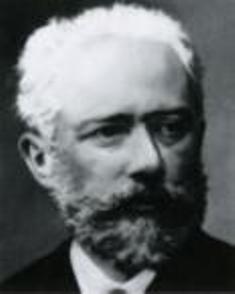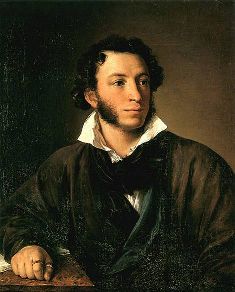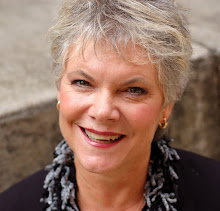Our final dress rehearsal is tonight, Thursday, Feb. 4. The director of Anchorage Opera told me the 700+ hall would be completely filled with students and their teachers from elementary through college-age. I'm not sure how "appropriate" Evgeny Onegin is for elementary children, only because it's an intellectual opera, telling the story of missed opportunities, rather than stage pratfalls and physical comedy. It's tragedy is the tragedy of love missed, not love lost; the onstage death is tragic only because it was so stupid and unnecessary, yet forced to happen by silly tradition and pride. I'm afraid they'll be bored, this post-MTV generation. Well, at least the music is very beautiful and will be easy to sleep to!! The opera is 3 hours long, in 3 acts.
Tchaikovsky wrote Evgeny Onegin between The Nutcracker and Swan Lake, so think gorgeous musical themes that resonate throughout the action. My role of Larina is a secondary lead, which is pivotal to the setting, but not necessarily to the action. Larina (accent on the first syllable, pronounced LAR-i-na) is a widowed estate holder, whose peasants love her (remember this is Russia in the 1820s) and the action of the first two acts takes place on her property, and involves her two daughters Tatiana and Olga. Olga is promised to Lensky, while Tatiana is a singular, solitary person who loves reading and harbors an intense inner passion towards all things "romantic" in nature. (Again, think 19th-century Romanticism, not romantic as we think of it today. Think the poetry set to music by Schubert, Schumann; think Goethe; think the operas of Weber, Berlioz, and early Wagner. DON'T think gratuitous romantic situations as in most TV shows today.) Lensky is a young poet (think Werther, Goethe's hero) who has grown up near the Larina estate and has always loved Olga. Everyone "knows" they will marry eventually. Onegin is also an interesting and dispassionate character. In many ways, he is the opposite of Tatiana (passion vs. dispassion). By denying himself his own feelings he has developed a life based on sarcasm and a sneering attitude towards anything emotionally based. Tatiana falls in love with him immediately upon meeting him; he represents the unattainable, the forbidden, that which she cannot understand and dearly wants to. She decides to write him a love letter that very night of meeting him, and this was a very brash thing for a young girl to do in this time. And, no, she did not text it: she wrote it in French (which all Russian aristocracy learned BEFORE they learned Russian in this era!). She persuades her nanny, Filipevna (accent on second syllable, not third: Fil-IP-yev-na) to get her grandson to deliver it. Onegin's response is slow in coming, and Tatiana suffers a great deal, before she bumps into him in the woods one day. He gives her a "sermon" on allowing her feelings to guide her life, and tells her that if he were to marry anyone it might be her, but he has no intention of living the kind of life she dreams of. They continue to run into each other, with much embarassment on Tanya's part (Tanya is a nickname for Tatiana). At the party which Larina gives, Onegin dances with Tanya, then flirts with Olga. This enrages Lensky, his younger friend, who quickly pushes this perceived slight into a full-blown argument, and forces the situation to a duel. In these days, duels were to the death, not just to wounding. They were based on honor, and were outlawed in most countries, but took place anyway. There was a code of honor that had to be followed: which guns were used, who was present, who called the duel satisfied (with or without death), etc. Many duels were fought which did not result in death, and the person who demanded the duel could determine whether his honor was satisified if both people missed their shots, one was wounded, but not killed, and so forth. Pushkin himself fought in over 30 duels before the one that killed him in 1837! Many people think that Evgeny Onegin foreshadowed Pushkin's own death; the duel which killed him, like Lensky the young poet, was fought over a slight he perceived given to his wife at a party.
So this is probably more information than you ever wanted or needed to know about duelling and Romanticism! But it also goes to show how much research you need to do to truly understand the era and zeitgeist of the opera in which you're performing. This is a singer's duty, her responsibility, and her pride, to know these things! Next time I'll tell you how it all ends.
The video posted below here is Janice Meyerson as Filipevna. Notice how gorgeous the Alaska Range is in the background. This view is to the west of Anchorage, the ocean is the Cook Inlet, and the mountains you can see contain two active volcanoes (Mount Spur was smoking on some rehearsal days, and erupted only a few months ago, like August or September.) The Alaska Range stretches from the Aleutian Islands and culminates in Denali some 1500 miles later. Also known as Mt. McKinley, at 20320 ft it is North America's highest peak. Many days we could see Denali from our rehearsal space, nearly 200 miles away! Imagine seeing something in Macon all the way from Rome....
Keep up your good work--next week is the last one I'll be without you, and we'll get ready for Georgia NATS in Athens.
Thursday, February 4, 2010
Subscribe to:
Post Comments (Atom)



What is going on in this video clip? Was this a staging rehearsal?
ReplyDeleteYes, it was--and now you know why I didn't continue much with the video work, despite my promise to. Its sound quality is very poor, and the amount of bytes is takes to get anything at all...well, pretty useless.
ReplyDelete